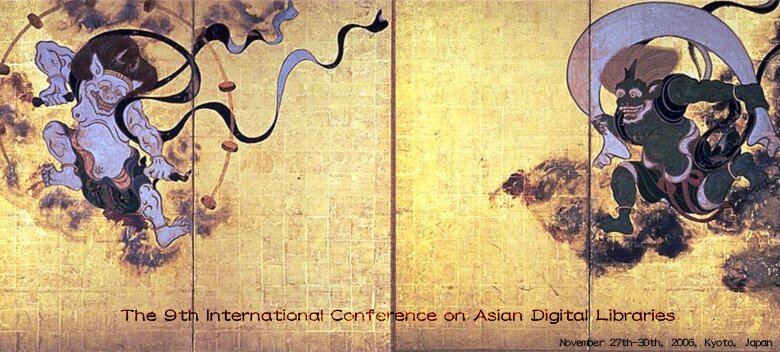| ご案内 |
| 実行委員会 |
プログラム委員会 |

会議プログラム |
特別セッション |
会場案内 |
参加登録/宿泊予約 |
広報資料 |
シャトルバスのご案内 |
会議中に撮影された写真(認証が必要) |
| [English Site] |
| 共催 | ||
| 協賛 | ||
| 後援 | ||
Copyright © 2006 Kyoto University
When to Use AI Search vs. Traditional Search: A Practical Guide
If you're wondering whether to stick with familiar keyword searches or embrace AI-driven options, you're not alone. The rapid evolution of technology means your choices can significantly affect how efficiently you find what you need—or how well your audience engages with your content. Understanding when to rely on traditional search and when to tap into AI's capabilities isn't just about technology; it's about matching your approach to your goals. Let's unpack what's at stake.
Understanding the Core Differences Between AI and Traditional Search
The evolution of online search has led to significant advancements from traditional keyword-based methods to more sophisticated systems that leverage artificial intelligence. Traditional search engines primarily depend on algorithms that match keywords to produce a ranked list of web pages. This approach is efficient for straightforward queries but often lacks the depth needed for more complex or nuanced inquiries.
In contrast, AI-driven search systems utilize Natural Language Processing (NLP) techniques to better understand and interpret user queries. This enables them to analyze conversational language, discern user intent, and generate direct answers or concise summaries based on relevant information.
The ability to handle more detailed and contextually rich questions enhances the user experience by providing responses that are tailored to individual needs. As a result, AI search demonstrates a superior capability for addressing complex queries compared to traditional search methods.
The integration of AI allows for a more intuitive interaction with search systems, making information retrieval not only faster but also more relevant and efficient. Overall, the transition from traditional search to AI-enhanced search represents a significant advancement in how users access and engage with information online.
How User Intent Shapes Search Outcomes
Modern search engines have evolved to prioritize user intent in shaping search outcomes. The intent behind a query significantly influences the results displayed. Research indicates that AI tools, particularly those employing natural language processing, demonstrate a greater ability to understand nuanced search intent, especially with longer and more complex queries.
In contrast, traditional search methods often rely on shorter, keyword-based inputs, which may overlook important contextual elements. By analyzing user needs more effectively, AI-driven search engines provide contextually relevant recommendations that aim to enhance the overall user experience.
For businesses and content creators, acknowledging the variety of user intents can inform and improve content strategies, ultimately leading to more effective engagement with target audiences. Prioritizing user intent can lead to more personalized and valuable search results, as opposed to generic responses, thereby enhancing the relevance of content delivered to users.
Comparing Key Features and Benefits
AI-powered search engines and traditional search engines exhibit key differences in their operational frameworks and user experiences. Traditional search engines primarily rely on keyword matching, which generates a list of ranked search results. This method is effective for straightforward queries and offers a familiar browsing experience for users.
However, AI-powered search tools utilize natural language processing (NLP) and generative AI, which allows them to better understand user intent. This capability enables them to provide direct answers and address more complex inquiries, facilitating a more conversational level of interaction with users.
In practice, average queries tend to be longer with AI tools, resulting in responses that are more tailored and contextually relevant to the user's needs. While traditional search engines are advantageous for quick and cost-effective information retrieval, AI-powered search engines aim to enhance productivity by adapting to user preferences over time.
However, this sophistication typically necessitates a higher investment from users or organizations in terms of resources and technology. Overall, the choice between AI-powered and traditional search methods depends on the specific needs and contexts of the users.
The Role of Complexity and Context in Query Resolution
Search queries today often encompass more than just basic fact-finding. AI-powered search engines are particularly effective when dealing with complex queries that require an understanding of context.
These tools utilize advanced natural language processing techniques to interpret user intent and retain context, even as users pose multiple follow-up questions.
In contrast, traditional search engines generally operate on short, keyword-driven inputs and tend to produce static lists of links. This approach can limit the relevance of results, particularly in cases where queries involve nuanced or multifaceted topics.
AI search engines, however, are capable of synthesizing fragmented or imprecise information, allowing them to offer direct answers or succinct summaries.
Consequently, the information retrieval process becomes more efficient and relevant, especially when users seek responses that necessitate a deeper understanding or a personalized context.
This advancement illustrates a notable shift in how search technology has evolved to better meet the needs of users in the digital information landscape.
Trust, Authority, and the Impact on Brand Recognition
As AI-driven search platforms continue to transform information access, trust and authority are increasingly significant factors in the user experience. Users often regard AI recommendations as credible due to their reliance on reputable sources.
Additionally, personalized recommendations can enhance trust, influencing purchasing decisions and reducing research time.
Brands that receive frequent citations from AI platforms can achieve higher authority and increased recognition, which can enhance their online visibility.
To build this trust, it's essential for companies to provide high-quality content. AI systems prioritize comprehensive and informative resources, which contribute to establishing brand authority and fostering stronger connections with the target audience.
The interplay between high-quality content and effective AI citation delineates the path toward improved brand trust and visibility in a digital landscape.
Optimizing Content for Both AI and Traditional Search Engines
As search technology continually advances, creating content that effectively caters to both AI-driven and traditional search engines requires a methodical approach.
Begin by employing clear headings and bullet points to enhance readability; both AI algorithms and traditional SEO practices benefit from well-organized content. Incorporating schema markup and structured data is essential for enabling AI search tools to efficiently extract key information, thereby improving content visibility.
Prioritize content optimization by crafting descriptive meta titles and descriptions, and ensure relevance through regular updates to the material.
Additionally, utilizing natural language processing (NLP) techniques—such as addressing and responding to actual user intent questions—can make your content more appealing to AI-powered search outcomes.
This strategy fosters a more comprehensive understanding of the information presented and aligns with best practices for search engine optimization.
Real-World Scenarios: Which Search Method Excels?
Decision-making in search strategies often depends on the nature of the queries being made. For nuanced questions or personalized recommendations, AI Search demonstrates particular effectiveness.
It's designed to understand user intent and interpret contextual queries, which allows it to deliver concise answers and summarize disparate information. This capability is particularly beneficial in real-world ecommerce settings, where it has been observed that users who receive actionable responses tend to exhibit higher conversion rates compared to those who are presented with a simple ranked list of links, as is typical with Traditional Search.
On the other hand, Traditional Search remains a valuable tool for straightforward information retrieval and broad browsing tasks. It's efficient in retrieving large volumes of data quickly.
Therefore, the choice between AI Search and Traditional Search should be guided by the requirements of depth and context versus the need for speed and broad scope. In summary, AI Search is preferable for complex queries that require understanding and contextualization, while Traditional Search is suitable for simple inquiries where speed is prioritized.
Implications for Marketers and Content Creators
The integration of AI-powered search technologies presents both challenges and opportunities for marketers and content creators.
It's essential to reassess content strategies in light of the evolving nature of user intent and the emergence of hybrid search intents facilitated by these tools. Unlike traditional search methods, modern platforms prioritize high-quality content that accurately addresses natural language queries and offers substantial value to users.
To maintain visibility, it remains critical to implement SEO best practices. Well-optimized and authoritative resources continue to perform well in search rankings; this is evidenced by the fact that a significant portion of AI-generated citations still reference blogs and company websites.
By aligning content with the principles of natural language processing utilized by AI, marketers and content creators can improve engagement levels and potentially enhance conversion rates.
Preparing for the Future of Search and Information Retrieval
As AI-driven search technologies evolve, it's important to adapt strategies to remain relevant in the changing landscape of information retrieval. Users increasingly employ longer, conversational queries rather than just keywords, which calls for a reevaluation of traditional search methods.
AI search capabilities leverage machine learning to provide a better contextual understanding of user intent, leading to improved handling of ambiguous queries. This change necessitates a blending of traditional search techniques with AI-driven approaches to maximize discoverability and user engagement.
To optimize content for these newer search methodologies, adherence to SEO best practices and implementation of generative engine optimization is recommended. This ensures that content remains discoverable by AI search engines.
Conclusion
To stay ahead, you’ll need to balance both AI and traditional search based on your goals. Use AI search for complex, conversational, or ambiguous queries—it’ll help you engage users and deliver richer information. Stick to traditional search for quick, factual answers that don’t require context. By understanding when to use each, you’ll optimize your content, enhance your brand’s visibility, and meet diverse user needs. Embrace both, and you’ll future-proof your strategy.












